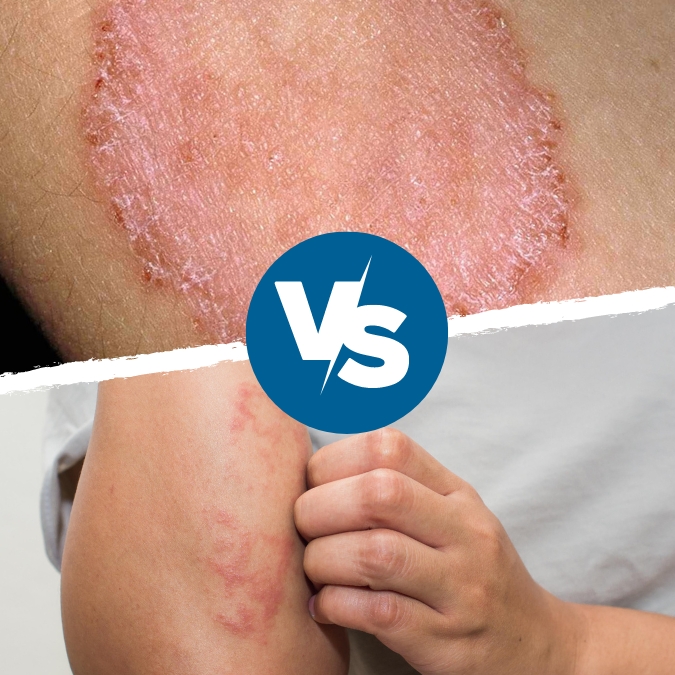These conditions are completely different from each other. They have separate causes and need specific treatments to soothe symptoms. However, these skin diseases share some common symptoms.
This article will help you know better about each skin disease for precise and more effective treatment.
Eczema
Eczema, the most common skin condition in children, mostly occurs in children under 5.
It causes long-lasting effects on individuals’ physical and emotional health (due to ugly looks).
The skin becomes red, itchy, scaly, and inflamed. It also weakens the immune system. Scratching the affected area can lead to blister formation. These are symptoms of moderate eczema.
Severe conditions may lead to a change in skin color (especially making the skin appear darker), spreading to various parts of the body, unbearable itching, excessive pain, crusty skin, and infection.
Treatment
It is not an infection. Still, It is best to get treatment as soon as you see its symptoms.
Use a moisturizing cream for its treatment. It will give you quick relief from pain. If used properly, you can recover from eczema within a few weeks. Still, the complete removal of symptoms may take some time.
To use it, gently squeeze a small amount and rub it on the affected area to avoid damaging the skin. Use it before going to sleep, and leave it overnight. Wash thoroughly to remove ingredients.
Psoriasis
It is a common chronic skin condition in adults. It induces red, white, and scaly patches on the skin. Those patches are usually dry, inflamed, and thick. Besides the skin, it can also affect nails.
The patches itch a lot and can also cause pain. These are the symptoms of mild psoriasis. The severe form is very dangerous and shows various other symptoms. It can spread to other body parts and is a sign of flare-ups.
These issues combined can make it very hard to sleep. This is how it causes poor sleep.
Treatment
It is difficult to cure. Psoriasis is a long-lasting condition and cannot be fully treated. Medication is available to soothe its symptoms. Light therapy (phototherapy), steroids, and some natural remedies are proven to reduce its symptoms.
However, an individual should not ignore the importance of preventive measures alongside treatment to avoid flare-ups.
Ringworm
Ringworm is a fungal disease caused by a mold-like parasite. As its name says, it causes ring-shaped patches on the skin, usually ½ to a half inch in size.
The patches can appear anywhere on the body, even on the genitals. Each ring-shaped patch has a raised border, and the skin inside will look normal. Only the border area becomes scaly and raised. It causes itching and pain. Ringworm is highly contagious. Scratching the area and touching someone or another part of the body without washing can spread the infection.
Eczema and ringworm do not have similar appearances, but nummular eczema, which has circular patches on the skin, is often mistaken for ringworm.
Treatment
Ringworm is relatively easy to treat. It is also easy to manage and face. Mild symptoms do not need treatment and go away after a few weeks.
Individuals must seek treatment for severe conditions. It can easily be treated with antifungal products, but doctor prescriptions are better. It will take a few weeks to completely get rid of patches.
Which is more dangerous?
Ringworm is relatively easier to treat and manage. It has a known cause, and moderate symptoms go away without any treatment. So, let’s stick to the other two diseases to check which is more dangerous.
It is difficult to tell which is more dangerous. Both are chronic (long-lasting) and have unknown causes. Neither eczema nor ringworm can be fully treated.
It is difficult to tell which is more dangerous. However, the level of danger can be determined by severity. Severe symptoms of one condition will be more dangerous than mild symptoms of another.
Conclusions
Each condition requires separate treatment. The last one is less dangerous than the other two but is contagious. Eczema and psoriasis cannot spread from person to person. It is better to get treatment for each condition, even mild symptoms. Consult with a doctor for proper care. I hope this guide helped you better understand each condition. Make sure to read other articles on our site.




